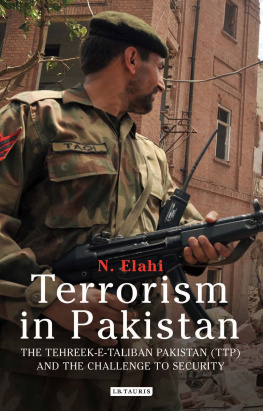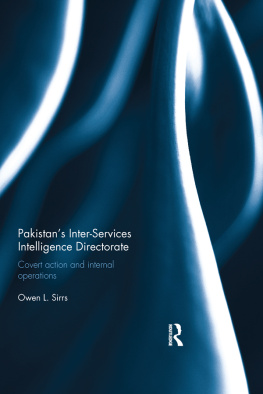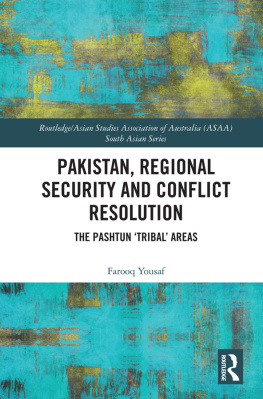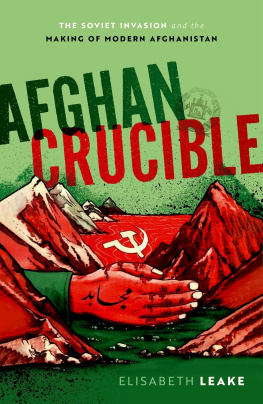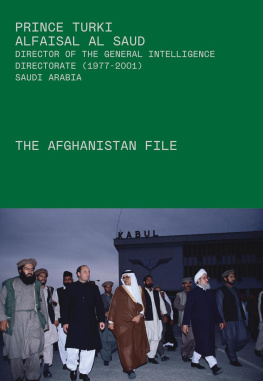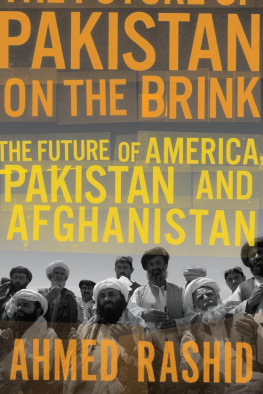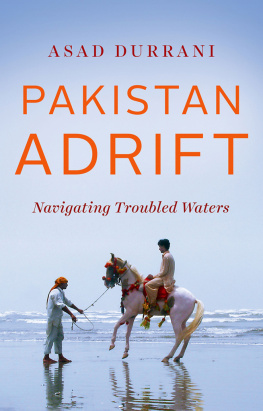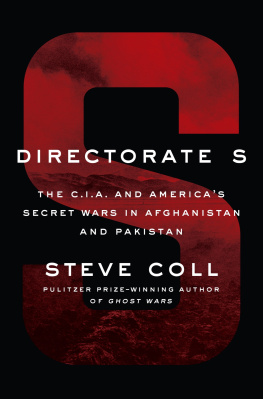Mohammad Yousaf, Mark Adkin
The Bear Trap (Afghanistans Untold Story)
At the start of this book, which tells the story of my part in the Afghan Jehad, I want to acknowledge the debt I, and indeed Pakistan and the Mujahideen owe to the Silent Soldier, General Akhtar Abdur Rahman. I served under him for four years at the height of the war, but he carried the enormous responsibility for the struggle against what was then the Soviet superpower, for over eight years. I call him the Silent Soldier because of his great humility and modesty. Few people, apart from his family knew him as well as I did until he was assassinated, along with President Zia-ul-Haq, in the plane crash in August 1988. At one blow the Jehad lost its two most powerful leaders.
When the Soviets invaded Afghanistan in 1979 President Zia sent for General Akhtar, who had recently taken over as Director of ISI. At that time nobody in authority in Pakistan, and certainly no overseas government (including the US), thought the Soviet military might could be confronted. Afghanistan was written-off as lost. The only person within the military to advocate supporting the Jehad by Pakistan, and the only person to come up with a plausible plan for doing so, was General Akhtar. He convinced the president that no only was it vital to Pakistans interests to fight the aggressors, but that there was every chance of defeating them. Some years later Zia was to say to him, you have wrought a miracle, I can give you nothing worthy of your achievements. Only God can reward you.
My job during my time at ISI was to command the Afghan Bureau which was charged with the day to day running of the Afghan war. General Akhtar was my superior, charged with devising, controlling and supervising the strategy to bring about victory in the field. Put in its simplest form he was the strategist, while I was the tactician. At the outset he was almost alone in thinking that the Soviet Union with all its modern aircraft and armour could be brought down by a few thousand poorly trained and armed Mujahideen. It certainly seemed an impossibility at the beginning. I recall being very skeptical myself when I first joined ISI on General Akhtars orders.
As events were to show he was right. Under his leadership, under this order, under his strategy, the communist menace was not only confronted, but turned backforced to retreat. Little wonder that the chief architect of this humiliation was on the top of the KGBs hit list with a huge price on his head. Nevertheless, during the time that I knew him he never wavered or showed concern at the danger or, but continued to press on with the Jehad.
I would venture to highlight two main areas in which General Akhtars influence was critical. The first was strategically. The whole concept of how to fight the war was his. He understood how even a guerrilla army can defeat a superpower in the battlefield if it applied the strategy of death by a thousand cuts. Gradually, over the years, as the Mujahideen became better armed and trained this strategy of avoiding direct confrontation, of concentration on soft targets, on communications, and on supply lines and depots, brought about a full, scale Soviet withdrawal. Only after the removal of General Akhtar from ISI (and from the command of Mujahideen) did we deviate from these methods, such as when we attacked Jalalabad head on, and suffered a serious setback.
At the centre of General Akhtars strategy lay the city of Kabul. Not that he wanted to take the capital by stormfar from it. But he recognized its political, economic, social, and military significance. His cry was Kabul must burn. It had to be cut off, its supply lines served, and it had to be under continuous pressure year in year out. He knew that if a stranglehold on the city could be applied it would fall without assault. His great wish was that he be able, after the war, to visit Kabul to offer prayers of thanksgiving for victory. Sadly it was not to happen.
The second area of crucial influence was in the political/diplomatic field, I do not mean international politics or diplomacy, but rather internal affairs. General Akhtar seemed to me to be the only person able to bring about a degree of unity among the fractious Mujahideen political parties. Without that degree of cooperation nothing of importance could be achieved on the battle field. He was able to unite, sometimes only temporarily I admit, leaders who were lifelong enemies. He was able to convince men who would not normally sit in the same room with each other to fight, together for the common goal of the Jehad.
An important part of his success was in his ability to resist the ever growing pressure by the US to run the war. Through the CIA the US sought to control the clandestine supply pipeline, arms distribution, and the training of the Mujahideen. That they were not able to do so was entirely due to General Akhtars efforts. It was a major contribution to a avoiding operational chaos.
Unfortunately, General Akhtar was removed from the ISI by a promotion he did not seek just as the Mujahideen were on the brink of success. His tragic death a year later prevented him from witnessing the Soviet retreat from Afghanistanthe ultimate proof that he had won. I believe that Pakistan and Afghanistan owe a debt of gratitude to him. I certainly count it a great privilege to have served under the only general in Pakistans short history to have masterminded a victory in a major war and earn a name for his military genius. I salute him.
BRIGADIER (RETD.) MOHAMMAD YOUSAF, S.Bt.
The information for this book came almost entirely from personal experience and observations during my time at ISI, and more recently when I returned to Peshawar. I know the Mujahideen, some of their Commanders and all their Leaders well, We worked and planned together for four years and I have discussed the situation today with many of them. This book, therefore, has not been written with extensive us of works of reference, or from the stories of journalist. I disagree with much that has been written about the war in Afghanistan. Sometimes the facts are wrong, more often the interpretation is wrong. This does not mean that all books on the war are valueless, far from it, but merely that I found very few to be reliable aids when compiling my manuscript. Those that were included Mark Urbans War in Afghanistan, Macmillan Press, 1988; David C. Isbys War in a Distant Country, Arms and Armour Press, 1986; and Robert D. Kaplans Soldiers of God, Houghton Mifflin Company, Boston 1990. Of these I found the first-mentioned to be particularly authentic and accurate.
DEATH by thousand cutsthis is the time-honoured tactic of the guerrilla army against a large conventional force. In Afghanistan it was the only way to bring the Soviet bear to its knees; the only way to defeat a superpower on the battlefield with ill-trained, ill-disciplined and ill-equipped tribesmen, whose only asset was an unconquerable fighting spirit welded to a warrior tradition. Ambushes, assassinations, attack on supply convoys, bridges, pipelines, and airfields, with the avoidance of set piece battle; these are historys proven techniques for the guerrilla. For four years, from 1983-87, it was my task to plan and coordinate these activities.
I was an infantry brigadier in the Pakistan Army when I was suddenly summoned to take over the Afghan Bureau of the Inter-Services Intelligence (ISI). I went reluctantly, and with foreboding. The ISI has, like most covert intelligent organizations and intimidating reputation both inside and outside the Services. It is considered to be the most effective intelligence agency in the third world. It is also vast, with hundreds of officers, both military and civil, and thousands of staff. Its head the Director Generalwho was the then Lieutenant-General Akhtar Abdul Rehman Khan, was the most powerful man in the armed forces, with daily direct access to President Zia.


